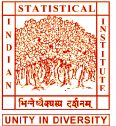Home
The Center for Research on the Economics of Climate, Food, Energy, and Environment (CECFEE), based at the Indian Statistical Institute, Delhi, conducts in-depth economic research and analysis on the interconnected challenges of climate change, energy security, environmental protection, and food security in India, with a strong emphasis on gender empowerment.
As the EfD India center of the Environment for Development Initiative, CECFEE hosts the Climate Policy for Development (CPfD) program, which advances policy-relevant research on carbon pricing and climate policies in low- and middle-income countries to support inclusive, sustainable development.
CECFEE has built a dynamic network of researchers dedicated to bridging the gap between academic rigor and practical policymaking. Its research themes include clean energy access, carbon pricing, air pollution, climate and health, nutrition, gender, groundwater sustainability, and human-wildlife conflict.
Latest Research
- January, 2026
- Journal of Environmental Economics and Management
- Energy, Environment, Others
- Aparajita Dasgupta
- , Ashokankur Datta
- , Anushree Khatri
- January, 2026
- Ashoka University
- Climate, Environment, Gender
- Benston John
- , E. Somanathan
- , Rohini Somanathan
- December, 2025
- Centre for Development Economics, Delhi School of Economics
- Energy, Environment
Latest Reads
Latest Events
- 8 Jan, 2026
- 11:30 AM
- Seminar Room 2, ISI Main Campus, New Delhi
- 11 Nov, 2025
- 3:00 PM
- Room 13, ISI Delhi


